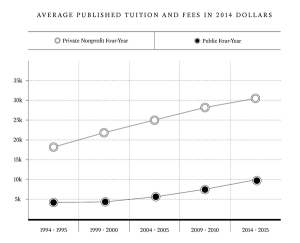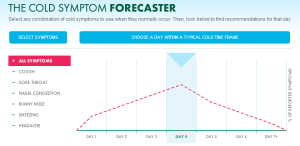Here we are in todays world, where the amount of cell phone subscriptions is 6.8 billion; there are almost as many cell phone subscriptions as there are people in the world. People in todays world are “addicted” to cell phones due to the fact that their are many applications and other things you can do on a phone rather than just calling another person. As the use of cell phones has been rising so has many concerns about the radioactive frequency being a possible cause of cancer. Before doing any research I had no complete understanding on this topic, so could not come up with a firm hypothesis. This leads me to pose the question, can too much cell phone use have the ability to cause cancer?

This shows that the amount of cell phone users is almost equal to the amount of people in the world today.
Cell phones transmit radio waves, which is a way for a brain tumor to form; currently the primary concern in medical field regarding cell phone use. “The largest case-control study to date” on the topic, The Interphone Study, had 5,000 individuals who were observed throughout this study. These individuals were looked at over a decade to see if “frequency of calls, longer call time”, or greater cell phone use would have an influence over if an individual would develop a brain tumor or would be at higher risk for getting the tumor. The study, though, did not find a link between brain tumor risk and greater cell phone use. This was an observational study, so some of the participants could have submitted information that they used their cell phone more than they really did or much less than what the case truly was. This is also less reliable due to the fact that the scientists could have looked at the participates cell phone records to find exact durations of time spent talking on the phone. Other third variables could have affected the study such as the participants could have already had health issues making it a higher chance for them to get cancer regardless of phone use, and also sometimes it could take longer than a decade for a brain tumor to show up due to cell phone use. There was thought of possible increased risk of glioma, but not enough evidence and scientific data to back up if this is a real issue or not. Correlation here does not mean causation and more research would have to be conducted due to the limitations that this study withholds.
“In 2011, the International Agency for Research on Cancer (IARC), an arm of the World Health Organization (WHO), declared cell phones a Class B Carcinogen, meaning a “possible cancer-causing agent,'” Two different kinds of brain tumors were thought to be formed from overuse of cell phones: “brain tumors (gliomas) and acoustic neuromas.” Dr. Lennart Hardell, a professor of oncology at University of Örebro in Sweden, analyzed data from two prior studies, one done from 1997-2003 and the other from 2007-2009. Of the patients, 1500 were brain cancer patients and 3500 were cancer free at the time of the study. Third variables were factored into their analysis to make sure that those factors didn’t have an effect on the outcome of the analysis, this included: age, gender, diagnostic year, and the chance of developing deadly brain cancer called glioma. What was analyzed is that those who were on their cell phones for longer times were twice as much likely to develop glioma than those who were on the phone less. Due to the fact that the patients logged their own cell phone hours, a bias could have been placed as people could have put more or less time spent on the cell phone than what was actually the truth. Both the studies are having the biggest problem be that the patients are logging their own information about cell phone use. If possibly, a single- blind placebo trial was conducted it could help with having third variables be an issue.
The patients on the two studies I have talked about were on the phone for long durations of time. This is what the brain looks like solely prior and post 15 minutes of cell phone use.

Although it shows more thermal heating post cell phone use(red color) does not mean that a brain tumor is going to then form.
Many studies have been conducted on this topic but no firm answer has been discovered. Very inconsistent information has been found. Why is this?
- Recall Bias– Error caused by differences in the accuracy or completeness of the “recalled”. If one got a brain tumor, one might say cell phone use was higher than what it really was. Could remember something different than what actually happened
- Inaccurate reporting- Say something occurred more or less than what actually happened.
- Mortality- If participant dies the information they have about their own phone use dies with them
- Changes in technology- Technology is now digital rather than more analog, and many studies are regarding analog technological devices.
A team of 31 scientists from 14 countries concluded that too much cell phone use is “possibly carcinogenic to humans.”
“The biggest problem we have is that we know most environmental factors take several decades of exposure before we really see the consequences,” –Dr. Keith Black, chairman of neurology at Cedars-Sinai Medical Center in Los Angeles.
This issue, referenced from the quote above, shares insight that it takes a long time to see evidence regarding this issue, just like how it was initially hard to see a correlation between smoking cigarets and lung cancer. But we shouldn’t be so “easy to accept the absence of evidence to be evidence of absence” discussed in class. Yes more evidence needs to be found and more studies need to be conducted, but their is still a sufficient amount of information out in the word for people to really start thinking about if cell phone use and cancer can really have this terrible link.
Currently, there is no clear cut evidence about whether or not cell phones cause cancer. Cell phone use is still a fairly new activity in todays world, and I feel that as time progresses and cell phone use gets greater and longer that a clearer answer on this topic will form. My hypothesis did connect with evidence that the world has today, its all unknown as of now and continued to be questioned. Things that cause cancer have consistently been a very controversial topic and hopefully one day many of the questions society has will be answered.




























